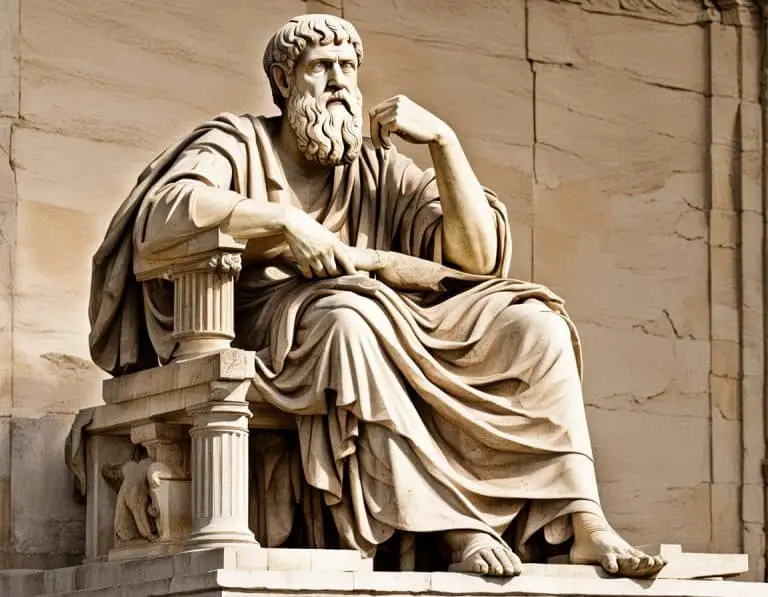The Relationship Between Plato’s Ethics and Politics
Plato’s political ideas are intrinsically intertwined with his ethical philosophy, reflecting a holistic view of governance that stems from his vision of an ideal society. In Plato’s work, “The Republic,” ethics serve as the cornerstone upon which a just and harmonious political system can be built. His emphasis on the importance of reason, virtue, and the pursuit of the common good underscores the notion that ethical principles should guide political decision-making. Plato believed that only by adhering to moral values and seeking the highest form of justice can a society achieve true excellence and stability.
By exploring the relationship between ethics and politics in Plato’s philosophy, we gain insights into the fundamental principles that underpin effective governance. Plato’s emphasis on cultivating wisdom, courage, moderation, and justice in individuals resonates with the idea that ethical leadership is essential for creating a fair and prosperous society. In a world where ethical dilemmas and moral relativism often challenge the fabric of political systems, Plato’s timeless wisdom reminds us of the enduring significance of integrating ethical considerations into the realm of politics.
Ethical Foundations of a Just Society
Plato’s ethical foundations for a just society are deeply rooted in his belief that individuals should strive for the greater good of the community rather than self-interest. In Plato’s ideal society, individuals would be guided by wisdom, courage, moderation, and justice, with each person fulfilling their designated role for the benefit of the whole. This emphasis on virtue and moral conduct serves as the cornerstone for building a harmonious and prosperous society where each member contributes to the common good.
Plato’s vision of a just society underscores the importance of education in shaping individuals to become virtuous citizens. He believed that through proper education and intellectual development, individuals could cultivate the necessary virtues to govern wisely and lead justly. By instilling ethical principles from a young age and promoting intellectual growth, Plato’s framework for a just society aims to create a community where individuals are guided by reason and integrity in their actions and decisions.
Criticisms of Plato’s Political Ideas
Plato’s political ideas have not been without their fair share of criticisms. One main critique often raised is the idealistic nature of Plato’s Republic. Critics argue that the implementation of a philosopher-king ruling class, as envisioned by Plato, is far removed from practical reality. The idea that a small group of individuals possessing superior wisdom could govern society effectively is seen as unrealistic and potentially dangerous in a democratic system.
Another criticism of Plato’s political ideas stems from his proposal for a rigid social hierarchy based on meritocracy. While meritocracy may seem fair in theory, critics point out that it can perpetuate existing inequalities and hinder social mobility. Plato’s emphasis on specialization and individuals knowing their rightful place in society could lead to a lack of diversity and stifle innovation. Furthermore, the exclusion of certain groups from participating in governance, based on predetermined criteria of virtue, raises concerns about elitism and exclusion in a truly just society.
Analyzing Contemporary Debates and Challenges
As we delve into the realm of contemporary political discourse, it becomes evident that Plato’s political ideas continue to ignite debates and provoke challenges in our modern society. Scholars and policymakers are grappling with the application of ancient philosophical theories to address pressing issues such as social inequality, governance structures, and civic engagement. The dichotomy between ideal governance as envisioned by Plato and the practicalities of real-world politics presents a central point of contention, with critics questioning the feasibility of implementing Plato’s utopian ideals in an increasingly complex and diverse world.
Moreover, the evolving landscape of global politics raises new challenges that prompt a reevaluation of Plato’s theories in the context of 21st-century governance. From the rise of populism to the growing influence of technology on political processes, contemporary debates highlight the need to reinterpret classical philosophies to navigate the complexities of our modern era. By critically assessing how Plato’s political ideas intersect with present-day challenges, we can glean valuable insights into reshaping political systems and fostering a more just and equitable society.
Reinterpreting Plato for 21st Century Governance
Plato’s timeless political theories offer a rich tapestry for contemporary governance. In today’s complex world, where challenges are multifaceted and dynamic, reinterpreting Plato’s ideas provides a fresh lens through which to examine governance structures. By delving into Plato’s writings on justice and the ideal state, modern policymakers can gain valuable insights into fostering a more equitable and just society.
One way to apply Plato’s political philosophy in the 21st century is to focus on the concept of philosopher-kings. While the idea of philosopher-kings ruling may seem utopian, the essence of this notion can be translated into striving for leaders who are not only knowledgeable but also possess a deep sense of moral integrity. By prioritizing ethical leadership qualities over charisma or popularity, societies can potentially navigate today’s turbulent political landscape with a stronger moral compass.
Adaptations of Classical Philosophies in Today’s World
The adaptation of classical philosophies, such as Plato’s political ideas, into the contemporary world presents both challenges and opportunities. As societies evolve, the relevance of ancient wisdom is often called into question, yet the core principles of justice, virtue, and governance remain timeless. By reinterpreting Plato’s teachings through a modern lens, we can extract valuable insights that resonate with the complexities of present-day politics.
One example of this adaptation is the application of Plato’s concept of philosopher-kings to current leadership models. While the idea of philosopher-kings ruling with wisdom and virtue may seem idealistic, it prompts us to reflect on the qualities we seek in our political leaders today. By integrating elements of Plato’s political philosophy into discussions on governance and policy-making, we can enrich our understanding and strive towards creating a more just and ethical society.
Related Links
Plato’s Political Impact: A Historical Analysis
Why Plato’s Political Philosophy Still Matters
